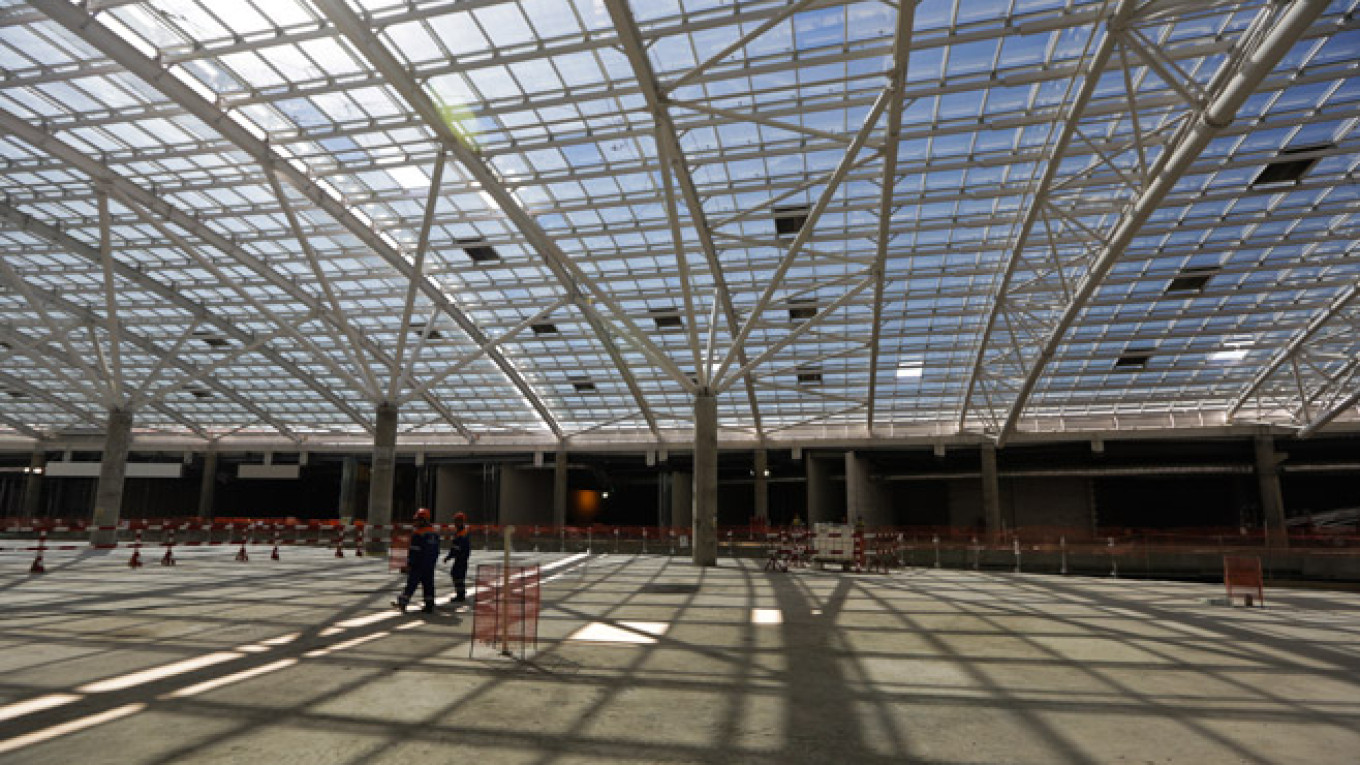The vacancy rate in Moscow shopping centers nearly doubled in the third quarter of this year and will continue to rise as consumption slumps and retailers pare back their plans for Russia, a report released Monday said.
Caught in the crossfire of low demand and record-high supply, the vacancy rate in shopping centers increased from 3.5 percent in the second quarter of the year to 6 percent in the third, said the report by consultancy Jones Lang LaSalle (JLL).
Retail has long been among the engines of economic growth in Russia thanks to a burgeoning and underserved middle class, but this year's high inflation and more than 20 percent devaluation of the ruble have hit Russian spending power and foreign retailers' profits.
Some retailers have closed down stores already, and those that remain are reevaluating their development plans, said Yelena Zadorozhnaya, head of tenant representation at JLL.
In late September, Empik Media & Fashion said it would close its Esprit and OVS stores, and Finnish department store Stockmann earlier this month announced plans to close 20 of its clothing stores in Russia.
But even as demand among retailers falls, Moscow is still seeing a flurry of major openings as projects started long before the crisis finally come on line.
Two new shopping centers opened in the third quarter, and another five are expected to open in the fourth, including the monumental Avia Park, which will become Europe's largest shopping mall with 227,000 square meters in leasable space.
"If all announced projects are opened in time, the volume of new retail space will exceed 750,000 square meters by the end of 2014, the highest level ever seen," said Tatyana Kluchinskaya, the head of JLL's retail department for Russia and the CIS.
As supply continues to rise and demand stays low, Moscow vacancy rates will likely climb higher in 2015, the report said.
Development of retail facilities in the regions may be hit even harder than in Moscow due to both low demand from retailers and limited access to debt financing, which has been squeezed by U.S. and EU sanctions against state-owned Russian banks.
Construction of new shopping centers is for the most part stalled in the regions, except for those projects "which have been financed already or are self-financed," Kluchinskaya said.
Contact the author at d.damora@imedia.ru
A Message from The Moscow Times:
Dear readers,
We are facing unprecedented challenges. Russia's Prosecutor General's Office has designated The Moscow Times as an "undesirable" organization, criminalizing our work and putting our staff at risk of prosecution. This follows our earlier unjust labeling as a "foreign agent."
These actions are direct attempts to silence independent journalism in Russia. The authorities claim our work "discredits the decisions of the Russian leadership." We see things differently: we strive to provide accurate, unbiased reporting on Russia.
We, the journalists of The Moscow Times, refuse to be silenced. But to continue our work, we need your help.
Your support, no matter how small, makes a world of difference. If you can, please support us monthly starting from just $2. It's quick to set up, and every contribution makes a significant impact.
By supporting The Moscow Times, you're defending open, independent journalism in the face of repression. Thank you for standing with us.
Remind me later.


